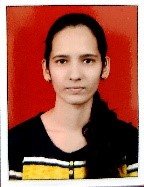B.Sc.(Computer Science) / BCS
Intake Capacity- 160
Three Year B.Sc. Degree Program in Computer Science
(Faculty of Science & Technology)
Choice Based Credit System
Preamble:
The B. Sc. (Computer Science) course is systematically designed three year degree program under the faculty of Science and Technology. The objective of the course is to prepare students to undertake careers involving problem solving using computer science and technologies, or to pursue advanced studies and research in computer science. The syllabus which comprises of Computer Science subject along with that of the three allied subjects (Mathematics, Electronics and Statistics) covers the foundational aspects of computing sciences and also develops the requisite professional skills and problem-solving abilities using computing sciences.
| Sr. No. | Name | Education | Designation | Exprience | Photo |
|---|---|---|---|---|---|
| 1 | Prof. Kiran Chaudhari | MCS, MCM | Vice Principal | 31 Years |  |
| 2 | Prof. Swapnil More | M.Sc.(Comp. Sci.) NET, SET | HOD | 6 Years |  |
| 3 | Prof. Sanjay Chavan | M.Sc. (Statistics), Ph. D. (pursuing) | Assistant Professor | 23 Years |  |
| 4 | Prof. Mhetre Alka | M.Sc. (Comp. Sci.) | Assistant Professor | 17 Years |  |
| 5 | Prof. Alhat Shital | M.Sc. (Comp. Sci.) | Assistant Professor | 17 Years |  |
| 6 | Prof. Londhe Madhuri | M.Sc. (Comp. Sci.) | Assistant Professor | 17 Years |  |
| 7 | Prof. Waghulde Dipali | M.Sc. (Mathematics), SET, Ph. D. (pursuing) | Assistant Professor | 16 Years |  |
| 8 | Prof. Mayura Sawant | M.Sc. (Comp. Sci.) | Assistant Professor | 1 Year |  |
| 9 | Prof. Pooja Sandbhor | M.Sc. (Comp. Sci.) | Assistant Professor | 1 Year |  |
| 10 | Prof. Balghare Sonali | M.Sc. (Comp. Sci.) | Assistant Professor | 1 Year |  |
| 11 | Prof. Mhetre Priyanka | M.Sc. (Mathematics) | Assistant Professor | 5 Years |  |
| 12 | Prof. Ganpule Kirti | M.Sc. (Electronics) | Assistant Professor | 2 Years |  |
| 13 | Prof. Ugale Nikita | M.Sc. (Mathematics) | Assistant Professor | 1 Years |  |
| 14 | Prof. Pradnya Rokade | M.Sc. (Comp.Sci.) | Assistant Professor | 3 Years |  |
| 15 | Prof. Trupti Mahajan | M.Sc. (Comp.Sci.), NET | Assistant Professor | 2 Years |  |
| 16 | Prof. Fulpagar Kamini | M.Sc. (Electronics) | Assistant Professor | 6 Years |  |
F.Y. B.Sc. CS (Semester-I)
Course Title:-CS-101 Problem solving using computer and C programming
CO1- Explore algorithmic approaches to problem solving.
CO2- Understand the concept of ‘C’ Fundamentals.
CO3-Develop modular programs using Control Structure
CO4- Understand and Develop modular programs using function and arrays in ‘C’.
Course Title: CS-102 Database Management Systems
To understand the fundamental concepts of database
To understand user requirements and frame it in data model
To understand user requirements and frame it in data model
To understand user requirements and frame it in data model
Course Title: CS-103 Practical Course based on CS-101 and CS-102 (C and DBMS)
Able to devise pseudo code and flowchart for computational problems.
Understand how to write, debug and execute simple programs in C.
Able to create database tables in Postgres SQL.
Able to write and execute simple and nested queries.
Course Title: ELC-111: Semiconductor Devices and Basic Electronic Systems
To introduce the fundamental concept and working principal of basic semiconductor devices.
To study various types of electronic circuits, and systems.
To build various applications in electronics using IC555
To bridge the gap between theoretical and practical knowledge.
Course Title: ELC-112: Principles of Digital Electronics
To provide the knowledge about number system and Arithmetic operations
To provide the understanding of basic logic gates, Boolean laws, K-map, SOP and POS method to design logic circuit
To study arithmetic circuits, combinational circuits, and sequential circuits.
Course Title: MTC 111 Matrix Algebra
A student should be able to understand the fundamental concepts of matrices.
A student should be Learn techniques for solving systems of linear equations in matrix.
A student should Understand and apply matrix factorization techniques to solve systems of linear equations, Explore linear independence and dependence.
A Students should be able to grasp the concept of a determinant and learn how determinants can be used to solve systems of linear equations
Course Title: MTC 112 Discrete Mathematics
Proficiency in logic, quantifiers and ability to translate mathematical statements into predicate logic
Understanding the concept of Boolean algebra and lattices.
Develop skills in solving counting problems with restrictions involving permutation and combinations.
Understanding generating functions and their use in solving recurrence relations.
Course Title: MTC 113 Mathematics Practical
Students will be able to compute matrix calculations using Maxima software.
Use appropriate modern technology to explore calculus concepts.
Solve applied problems using matrices.
Solve systems of linear equations by use of the matrix.
Students will be able to formulate problems in the language of sets and perform set operations and will be able to apply the Fundamental Principle of Counting, Multiplication Principle.
Course Title: CSST 111 Descriptive Statistics
The main purpose of descriptive statistics is to provide a summary of the samples and the measures done on a particular study.
To provide basic information about variables in a dataset.
Course Title: CSST 112 Mathematical Statistics
It will help students develop skills in thinking and analyzing problems from a probabilistic and statistical point of view.
It will provide the difference between Discrete and continuous distributions.
Course Title: CSST 113 Statistics Practical Paper I
To Study free statistical software’s and use them for data analysis in project.
To use Statistical tools in Ms-Excel.
F.Y. B.Sc. CS (Semester – II)
Course Title:-CS 201 Advanced C programming
Develop advanced concepts of programming using C.
Develop modular programs using control structures, pointers, arrays, strings, and structures.
Design and develop solutions to real-world problems using C.
Able to develop a structured programming approach.
Course Title: CS-202 Relational database Management Systems
Explain the concept of stored procedure ,stored function and cursor trigger in PL/SQL Language.
Explain the concepts transaction processing ,concurrency control and recovery
Interpret the concurrency control technique
Describe the concept of crash recovery
Understand the different databases
Course Title:- CS-203 Practical Course based on CS-201 and CS-202(Advanced C and RDBMS)
Write debug and execute programs using advanced features in C.
To perform advanced database operations.
Course Title: ELC-121 Instrumentation System
To study various kinds of Instruments, sensors and its parameters
To control the parameter in the process or a particular system.
To study smart sensors for smart Electronics Applications.
To study & understand the concept of operational amplifier and its applications
Course Title: ELC-122 Basics of Computer Organization
To study and design different Flip-flops using gates
To study and design different counters.
To study the basics of the computer system.
To study Memory Organization.
Course Title: – ELC- 123 Electronics Practical Paper – II
To use basic concepts for building various applications in electronics.
To understand design procedures of different electronic circuits as per requirement.
To build an experimental setup and test the circuits.
To develop skills of analyzing test results of given experiments.
Course Title:- MTC 121 Linear Algebra
Solve systems of linear equations using various methods including Gaussian and Gauss Jordan elimination and inverse matrices.
Perform matrix algebra, invertibility, and transpose and understand vector.
Compute linear transformations, kernel and range, and inverse linear transformations, and find matrices of general linear transformations.
Compute inner products on a real vector space and compute angle.
Prove basic results in linear algebra using appropriate proof-writing techniques such as linear independence of vectors; properties of subspaces.
Course Title: – MTC 122 Graph Theory
Explain basic concepts in graph theory.
Define how graphs serve as models for many standard problems.
Account for the theory of paths and degree of connectedness of graph.
Learn the use of a spanning tree.
Discuss the concept of the graph, tree, and Euler graph.
See the applications of graphs in science, business, and industry.
To present a survey of essential topics for computer science students who will encounter some of them again in more advanced courses.
Course Title:- MTC 123 Mathematics Practical
Students will be able to find eigenvalues and eigenvectors using Maxima software.
Students will be able to perform operations on orthogonality and quadratic forms.
Use appropriate modern technology to explore calculus concepts.
Course Title:- CSST 121Method of Applied Statistics
To create a mathematical model that can be used to predict the values.
To Handle large data and analyze it with statistical tools.
Course Title:- CSST 122 Continuous Probability Distribution and Testing of Hypothesis
To study the distribution of various data
Students should use these techniques for their projects.
Course Title:- CSST 123Statistics Practical Paper II
How to use statistical tools in a real-life situation.
Handling data for research purposes.






